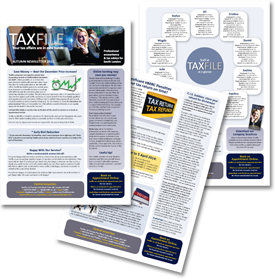 Her Majesty’s Revenue & Customs (‘HMRC’) have now completed a 7 month pilot scheme, held across the North East of England, whereby they closed existing HMRC Enquiry Centres and instead offered those requiring extra help with tax-related issues assistance in a different, more tailored way. With the pilot scheme now complete and deemed a success, all Enquiry Centres across the UK will be closed by 30 June 2014 (just a few days away at time of writing) in favour of the new, more tailored system.
Her Majesty’s Revenue & Customs (‘HMRC’) have now completed a 7 month pilot scheme, held across the North East of England, whereby they closed existing HMRC Enquiry Centres and instead offered those requiring extra help with tax-related issues assistance in a different, more tailored way. With the pilot scheme now complete and deemed a success, all Enquiry Centres across the UK will be closed by 30 June 2014 (just a few days away at time of writing) in favour of the new, more tailored system.
Since the end of May, HMRC have already been rolling out the replacement service, being “a new way to support people who need extra help to get their taxes, tax credits and child benefit entitlements right”. The new service will be more tailored to individual needs and will apparently be more efficient than the Enquiry Centres, which have seen demand drastically falling over recent years. So evidently the new service is also about saving the Government money, which is good to see as it helps to reduce the UK’s overall tax burden and mitigates possible tax increases.
The Replacement Service
The replacement service will be available by telephone or face-to-face via a mobile squad of advisers, who will deal with you on the telephone, visit your home or meet you within your local community, if preferred. The HMRC specialist involved will try to resolve, as fully as possible, all tax and tax credit-related queries during the course of the initial session. This will be aided by liaison, during that session, between the adviser and other experts from different departments within HMRC; the aim being to Read more
 You’re running out of time to submit your tax return and have just HOURS left! We are here to help you fill in and submit your self assessment tax returns to HMRC on Saturday 31st (by appointment only, 9-1pm) so come and see us quickly or you may miss the HMRC deadline. If you do miss it, you’ll get an automatic fine of £100 minimum – and it could get significantly worse (up to £1,600) if you continue to delay.
You’re running out of time to submit your tax return and have just HOURS left! We are here to help you fill in and submit your self assessment tax returns to HMRC on Saturday 31st (by appointment only, 9-1pm) so come and see us quickly or you may miss the HMRC deadline. If you do miss it, you’ll get an automatic fine of £100 minimum – and it could get significantly worse (up to £1,600) if you continue to delay.

 HMRC have recently been targeting tax agents who file high volumes of tax returns and, as one of the UK’s top 100 tax return preparers by volume, Taxfile had the honour of having an inspection by HMRC inspectors during late October.
HMRC have recently been targeting tax agents who file high volumes of tax returns and, as one of the UK’s top 100 tax return preparers by volume, Taxfile had the honour of having an inspection by HMRC inspectors during late October. HMRC are constantly reviewing who has and has not declared income properly from letting out property, whether that’s from short-term lets, long-term lets, holiday lets, letting rooms to students or to workforces. And with new, sophisticated, data sharing systems now in full force across many agencies, authorities, online, via tip-offs and surveillance, the Government has its sights on an estimated 1.5 million landlords who they think have under-paid tax.
HMRC are constantly reviewing who has and has not declared income properly from letting out property, whether that’s from short-term lets, long-term lets, holiday lets, letting rooms to students or to workforces. And with new, sophisticated, data sharing systems now in full force across many agencies, authorities, online, via tip-offs and surveillance, the Government has its sights on an estimated 1.5 million landlords who they think have under-paid tax. Do you have online banking? Sending us downloaded statement information straight from your online banking means we can more easily import the data into our system and check for expenses and income which might otherwise have been overlooked. It can also fill in the gaps where you are missing receipts or invoices. This simple service could therefore save both time and money! Most online banking platforms allow you to export this information, for example as a CSV file, and this format is perfect for our accounting system.
Do you have online banking? Sending us downloaded statement information straight from your online banking means we can more easily import the data into our system and check for expenses and income which might otherwise have been overlooked. It can also fill in the gaps where you are missing receipts or invoices. This simple service could therefore save both time and money! Most online banking platforms allow you to export this information, for example as a CSV file, and this format is perfect for our accounting system. [UPDATED]: Calling all subbies! Claim your refund in time for Christmas AND get a 5% discount on Taxfile prices if you submit your records to us before 21st December!
[UPDATED]: Calling all subbies! Claim your refund in time for Christmas AND get a 5% discount on Taxfile prices if you submit your records to us before 21st December!
 [UPDATED AUGUST 2020] Did you know that you get an automatic £100 minimum penalty if you file your Self Assessment tax return (or pay any tax owed) even one day late? After 3 months you can add £10 per day extra to that fine (up to 90 days/£900 max) and after 6 months it gets significantly worse. And remember that you need to file your return on time even if you don’t owe any tax, or if you have already paid it! Latest indications are that there are also no warnings given by HMRC. See the table below for the detail.
[UPDATED AUGUST 2020] Did you know that you get an automatic £100 minimum penalty if you file your Self Assessment tax return (or pay any tax owed) even one day late? After 3 months you can add £10 per day extra to that fine (up to 90 days/£900 max) and after 6 months it gets significantly worse. And remember that you need to file your return on time even if you don’t owe any tax, or if you have already paid it! Latest indications are that there are also no warnings given by HMRC. See the table below for the detail.

 HMRC have sent out warnings over a significant threat from new ‘phishing’ emails purporting to be from them. They are, in fact, scam emails which include links to replicas of the HMRC site and are designed to trick people into disclosing security-sensitive financial and personal information such as bank details, National Insurance numbers, credit card details, passwords, mother’s maiden names and so on. In the wrong hands these details could mean theft of your money or even your identity. Many people do not realise they have been scammed until it’s too late so taxpayers need to stay alert when checking emails and browsing online.
HMRC have sent out warnings over a significant threat from new ‘phishing’ emails purporting to be from them. They are, in fact, scam emails which include links to replicas of the HMRC site and are designed to trick people into disclosing security-sensitive financial and personal information such as bank details, National Insurance numbers, credit card details, passwords, mother’s maiden names and so on. In the wrong hands these details could mean theft of your money or even your identity. Many people do not realise they have been scammed until it’s too late so taxpayers need to stay alert when checking emails and browsing online.
 Her Majesty’s Revenue & Customs (‘HMRC’) have now completed a 7 month pilot scheme, held across the North East of England, whereby they closed existing HMRC Enquiry Centres and instead offered those requiring extra help with tax-related issues assistance in a different, more tailored way. With the pilot scheme now complete and deemed a success, all Enquiry Centres across the UK will be closed by 30 June 2014 (just a few days away at time of writing) in favour of the new, more tailored system.
Her Majesty’s Revenue & Customs (‘HMRC’) have now completed a 7 month pilot scheme, held across the North East of England, whereby they closed existing HMRC Enquiry Centres and instead offered those requiring extra help with tax-related issues assistance in a different, more tailored way. With the pilot scheme now complete and deemed a success, all Enquiry Centres across the UK will be closed by 30 June 2014 (just a few days away at time of writing) in favour of the new, more tailored system.